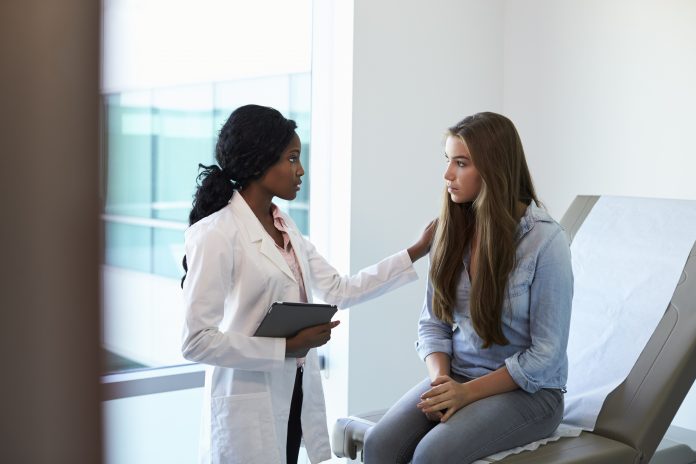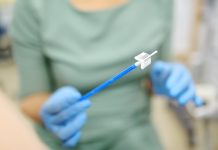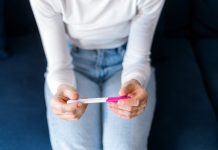FemTechLab brings together experts to discusses why female health and wellness should be a top priority as the National Health Service (NHS) rebuilds following COVID-19
An open letter to the UK Department of Health and Social Care from FemTech Lab…
For too long, structural inequality in the NHS has contributed to a lack of understanding and investment into female health and wellbeing. Despite almost 80% of the NHS workforce being female, the majority of senior leadership positions (63%) are still held by men.
This inequality has led to many women’s health services and clinical pathways being designed without the end-user in mind. Let’s take just one real-world example. A woman in a same-sex relationship, presenting with symptoms of endometriosis, was advised by her GP to get the Mirena coil to improve her symptoms. When she went to have the coil fitted through family planning services, she was asked was whether it was for ‘contraceptive purposes’. Since it wasn’t, she was denied access to the coil – a treatment advised by her doctor – for about half a year.
This is not an isolated incident. As a result of inaccessible services and healthcare gaps such as these, women spend a greater proportion of their lives living with ill health and disability, despite having a longer life expectancy than men.
As part of recent efforts to address gender inequality in healthcare, the UK Department of Health and Social Care (DHSC) is developing a new Women’s Health Strategy. In response to the Department’s call for evidence, FemTech Lab brought together a range of subject-matter experts to participate in an evidence-gathering exercise. This is what we found.
Under-researched and under-diagnosed
Women are chronically under-represented in clinical trials. This is particularly true for those who are elderly, of childbearing age, have disabilities, or are from the LGBT+ or BAME communities. If you’re a female reader, chances are you fall into at least one of these groups!
The impact of this is two-fold. Firstly, it leads to diagnostic delays. For instance, women have typically diagnosed with heart disease an average of seven to ten years later than men. Such delays often result in other chronic diseases being prevalent by the time of diagnosis, impacting life expectancy and quality of life.
Secondly, it can lead to women being prescribed inappropriate treatments, which continues to be a global problem. For instance, between 2004 and 2013, US women suffered more than two million drug-related adverse events, compared with 1.3 million for men. Had more women been part of clinical trials, these outcomes could have been avoided.
Poor data leads to inadequate outcomes
A review of current medical literature reveals a dearth in women’s health data. This must be addressed if the DHSC’s Women’s Health Strategy is to achieve better health outcomes. Within the NHS, the collection of new in-depth women’s health data should become routine practice. Plus, an in-depth analysis of existing data is necessary. The resulting insights should be embedded into the NHS operating framework so that they are readily available to medical practitioners.
As well as medical data, the collection of patient feedback should be at the heart of any future transformation of women’s health services. It’s crucial to offer safe, inclusive spaces in which women feel confident to share their experiences, especially if they have felt let down in the past. Too often, women who have criticised the way they were treated by the NHS have been left feeling disempowered, with little or no action taken to address their concerns.
Technology can improve outcomes for women
The female health and wellness technology sector is entering a golden era. However, we feel that innovative solutions developed by the FemTech industry are currently being underestimated by the NHS. From offering more immediate feedback options, to providing accessible self-management education and support for women, technology has the potential to be a gamechanger for female health.
We suggest that the NHS accelerates deployment opportunities for female health technology and digital health companies in a variety of healthcare settings. Similar partnerships have previously been shown to be effective. For instance, FemTech company Elvie has successfully partnered with the NHS to distribute its urinary incontinence trainer to women suffering with a weak pelvic floor. So far, the partnership has delivered savings of £424 per patient.
Additionally, we call on the NHS to close the data gap by working with health technology companies to collect and analyse women’s health data. The FemTech industry has a huge untapped resource of expertise in this area. Collaboration would stimulate research and generate insights into key women’s health topics, as well as catalysing innovation.
It’s clear that, as the NHS recovers from the shock of the pandemic, it has a unique chance to use technology to build back better. We’ve already seen an acceleration in the digital transformation of healthcare because of the COVID-19 pandemic, including virtual counselling and GP appointments. We hope that the DHSC will build on this momentum and utilise the services, products and software being developed by the FemTech industry to address gender-based healthcare inequality.
Signed,
- Shakti Dookeran, Innovation Lead, Imperial College Health Partners
- Amy Thomson, Founder and CEO, Moody
- Jenny Thomas, Programme Director, Digital Health. London
- Hannah Samano, Founder and CEO, Unfabled
- Dot Zacharias, Co-Founder and COO, Nourish App
- Nicole Leeds, Head of Marketing Strategy, Clue
- Efftichia Dower, Commercial Solicitor, Stephenson Law
- Karina Vazirova, Co-Founder, FemTech Lab
- Terri Harris, Women’s Health Specialist and Head of Community, FemTech Lab











